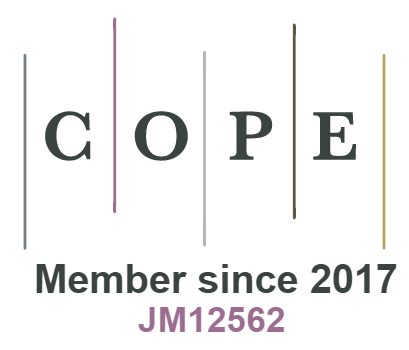Opportunities and Challenges of Data Migration in Cloud
DOI:
https://doi.org/10.18034/ei.v9i1.529Keywords:
data migration, cloud computing, cloud, enterprise systemsAbstract
Cloud data migration is the process of moving data, localhost applications, services, and data to the distributed cloud processing framework. The success of this data migration measure is relying upon a few viewpoints like planning and impact analysis of existing enterprise systems. Quite possibly the most widely recognized process is moving locally stored data in a public cloud computing environment. Cloud migration comes along with both challenges and advantages, so there are different academic research and technical applications on data migration to the cloud that will be discussed throughout this paper. By breaking down the research achievement and application status, we divide the existing migration techniques into three strategies as indicated by the cloud service models essentially. Various processes should be considered for different migration techniques, and various tasks will be included accordingly. The similarities and differences between the migration strategies are examined, and the challenges and future work about data migration to the cloud are proposed. This paper, through a research survey, recognizes the key benefits and challenges of migrating data into the cloud. There are different cloud migration procedures and models recommended to assess the presentation, identifying security requirements, choosing a cloud provider, calculating the expense, and making any essential organizational changes. The results of this research paper can give a roadmap for data migration and can help decision-makers towards a secure and productive migration to a cloud computing environment.
Downloads
References
Ahmed, A. A. A., Donepudi, P. K., & Asadullah, A. B. M. (2020). Artificial Intelligence in Clinical Genomics and Healthcare. European Journal of Molecular & Clinical Medicine, 7(11), 1194-1202, https://ejmcm.com/?_action=article&au=24014
Bedward, R., & Fokum, D. T. (2014). A Cloud computing adoption approach for Jamaican institutions. IEEE SOUTHEASTCON 2014, p. 1–6. https://doi.org/10.1109/SECON.2014.6950693 DOI: https://doi.org/10.1109/SECON.2014.6950693
Bhardwaj, S.; Jain, L.; & Jain, S. (2010). Cloud computing: A study of infrastructure as a service (IAAS). International Journal of Engineering and Information Technology, 2(1), 60–63.
Buyya, R.; Yeo, C. S.; and Venugopal, S. (2008). Market-oriented cloud computing: Vision, hype, and reality for delivering it services as computing utilities. in High Performance Computing and Communications, HPCC’08. 10th IEEE International Conference, pp. 5-13. DOI: https://doi.org/10.1109/HPCC.2008.172
Donepudi, P. K., Ahmed, A. A. A., Hossain, M. A., & Maria, P. (2020a). Perceptions of RAIA Introduction by Employees on Employability and Work Satisfaction in the Modern Agriculture Sector. International Journal of Modern Agriculture, 9(4), 486–497. https://doi.org/10.5281/zenodo.4428205
Donepudi, P. K., Ahmed, A. A. A., Saha, S. (2020b). Emerging Market Economy (EME) and Artificial Intelligence (AI): Consequences for the Future of Jobs. Palarch’s Journal of Archaeology of Egypt/Egyptology, 17(6), 5562-5574. https://archives.palarch.nl/index.php/jae/article/view/1829
Kocak, S. A.; Miranskyy, A.; Alptekin, G. I.; Bener, A. B.; and Cialini, E. (2013). The Impact of Improving Software Functionality on Environmental Sustainability. on Information and Communication Technologies, p. 95.
Misra, S. C., and Mondal, A. (2011). Identification of a company’s suitability for the adoption of cloud computing and modeling its corresponding Return on Investment. Mathematical and Computer Modelling, 53, 504-521. DOI: https://doi.org/10.1016/j.mcm.2010.03.037
Pallas, F. (2014). An agency perspective to cloud computing. in International Conference on Grid Economics and Business Models, pp. 36-51. DOI: https://doi.org/10.1007/978-3-319-14609-6_3
Rahman, M. M., Chowdhury, M. R. H. K., Islam, M. A., Tohfa, M. U., Kader, M. A. L., Ahmed, A. A. A., & Donepudi, P. K. (2020). Relationship between Socio-Demographic Characteristics and Job Satisfaction: Evidence from Private Bank Employees. American Journal of Trade and Policy, 7(2), 65-72. https://doi.org/10.18034/ajtp.v7i2.492 DOI: https://doi.org/10.18034/ajtp.v7i2.492
Vadlamudi, S. (2015). Enabling Trustworthiness in Artificial Intelligence - A Detailed Discussion. Engineering International, 3(2), 105-114. https://doi.org/10.18034/ei.v3i2.519
Vadlamudi, S. (2016). What Impact does Internet of Things have on Project Management in Project based Firms?. Asian Business Review, 6(3), 179-186. https://doi.org/10.18034/abr.v6i3.520
Vadlamudi, S. (2017). Stock Market Prediction using Machine Learning: A Systematic Literature Review. American Journal of Trade and Policy, 4(3), 123-128. https://doi.org/10.18034/ajtp.v4i3.521
Yigitbasioglu, O. (2014). Modelling the intention to adopt cloud computing services: a transaction cost theory perspective. Australasian Journal of Information Systems, vol. 18. DOI: https://doi.org/10.3127/ajis.v18i3.1052
--0--
Downloads
Published
Issue
Section
License
Engineering International is an Open Access journal. Authors who publish with this journal agree to the following terms:
- Authors retain copyright and grant the journal the right of first publication with the work simultaneously licensed under a CC BY-NC 4.0 International License that allows others to share the work with an acknowledgment of the work's authorship and initial publication in this journal.
- Authors are able to enter into separate, additional contractual arrangements for the non-exclusive distribution of the journal's published version of their work (e.g., post it to an institutional repository or publish it in a book), with an acknowledgment of its initial publication in this journal. We require authors to inform us of any instances of re-publication.






